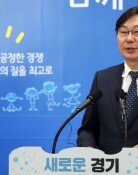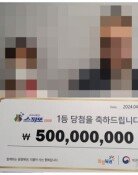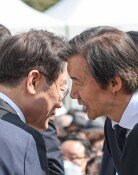Who controls the main opposition party?
Who controls the main opposition party?
Posted February. 21, 2012 01:04,
The so-called preparatory committee for candlelight vigil election, which is led by protesters who staged candlelight vigils against Korea`s resumption of U.S. beef imports in 2008, said, "(The main opposition Democratic United Party) established its election candidate nomination committee primarily with figures who fail to conform to the spirit of the candlelight vigils by supporting or acquiescing to the Korea-U.S. free trade agreement," urging a revamp of the committee. Staging a sit-in rally in tents in front of the party`s headquarters in Seoul`s Yeongdeungpo district, members are pressuring the party to use contender intent to scrap the accord as the condition for candidate nomination. If the party chooses to use the ideology of candlelight vigils against the resumption of U.S. beef imports as criteria for candidate nomination, it can hardly be considered a public political party that seeks to regain power.
A national coalition against the free trade agreement recently released a list of 160 people whom it claims should be held responsible for the accord. The list includes seven party lawmakers who backed negotiations for the pact, including floor leader Kim Jin-pyo. The party officially denied this, but those among forces against the agreement in and outside the party reportedly urged Kim to not run in the April 11 general elections. Certain left-leaning groups have threatened to stage a campaign to boycott candidates by verifying the latter`s positions on the incumbent government`s four-river restoration project and the construction of a naval base on Jeju Island.
Mindful of a possible backlash in public sentiment, the main opposition party, which has urged discarding of the trade accord, has grudgingly backed off, saying, "We meant to scrap the agreement if a second renegotiation fails to take place." Nevertheless, the party is highly wary of forces who led the candlelight vigils, those who urge the scrapping of the pact, and ultra-leftist forces such as the coalition. Centralist lawmakers within the party, who internally agree upon the need for the trade accord, also remain tight-lipped for fear of criticism from such forces. Hard-line forces that control the leadership are effectively controlling the main opposition party.
In 2008, then President Roh Moo-hyun told Shim Sang-jung, chairwoman of the New Progressive Party who was opposed to the trade pact, "Opening is a global trend. This is the reason that you, Chairwoman Shim (who objected to market opening) cannot become a mainstream political group." An "open trade nation" as envisioned by the late Roh effectively runs counter to the criteria for the identity of the main opposition party`s nomination committee, which can determine the fate of candidates. This indicates a situation in which the positions of the mainstream and non-mainstream groups have been virtually reversed within the main opposition party despite its pledge to inherit Roh`s legacy.
The party is saddled in the "trap of coalition," which makes it to believe that consolidation of the opposition camp is the only way to survive and regain power rather than the Korea-U.S. free trade agreement. The party has deserted the accord despite the latter being pushed for by former Presidents Kim Dae-jung and Roh in an attempt to satisfy the orientation of certain hard-liners and the United Progressive Party, whose approval rating is merely 3-4 percent. Leaders of the Democratic United Party, who seek to carry on Roh`s legacy, are embroiled in controversy over changes to their stances yet still irrationally claim that the Lee Myung-bak administration worsened the deal through renegotiation with the U.S. The main opposition party is apparently failing to sense public sentiment, which is becoming increasingly negative toward it due to the influence of unconditional anti-Americanism of left-leaning progressive groups.







